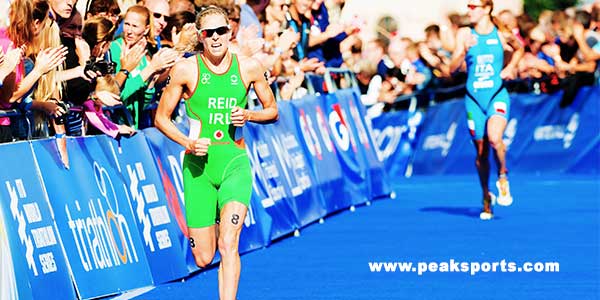
Challenges Help you Reach Goals
It can be difficult to stay motivated and train at a high level throughout the competitive season.
Practices can be monotonous. Depending on the sport, training sessions can be long and grueling. Seasons are lengthy. There are ups and downs all through the year. Injuries and discomfort can pile up during the year.
A lot of time and energy are expended during the course of the year. Pressures exist in and out of sports… And potential distractions are all around.
With all these aspects at play, it can be easy to make excuses for missing practices and not giving full effort in training sessions.
Common excuses include:
- I don’t have the time to train
- I don’t feel 100 percent and I am not up to training today.
- I will make it up in tomorrow. One practice won’t make a difference.
- The weather is too cold, rainy or windy.
- I’m too tired and need a day of rest.
- It’s only practice. It’s not a competition.
- I still perform well even though I don’t train as hard as others.
- I have a lot to do today other than training.
- I having a nagging injury and should rest it.
Excuses pull you away from your potential. Excuses become habits and these habits have a profound impact on performance. Excuses, then, become the reason some athletes fall short of achieving their goals.
The goal of training is to challenge yourself to the max so the pressure and discomfort of competition is a known entity. Challenging yourself prepares you to be at your best in competition. Basically, top athletes push in training to the point that competitions seem easier mentally and physically.
Marathon runner Val Curtis understands the challenges inherent in training and the effects those challenges have on performance. Curtis won the 2019 Sanford Fargo Marathon in 2:43.08, thus qualifying for the Olympic Marathon Trials.
The road to success was not easy for Curtis. Curtis faced many training challenges including:
- Family and being a mother
- A lengthy layoff from competing
- Difficult training conditions in North Dakota, such as blistering cold, snow, and, at times, blizzards.
- Being 32 years old and the physical stress on her body.
After Curtis won the marathon, she talked about how the challenges of training prepared her to perform at a high level.
CURTIS: “There wasn’t anything I wasn’t prepared for today. I trained through it all. The mental toughness of having to run miles on a treadmill the whole month of February when it’s negative 60, negative 50 outside; you can’t get work done outside. It’s not a place for a fair weather runner, for sure. It builds so much mental toughness so I was ready for today.”
Not only do training challenges push you to expand your physical capabilities and prepare you to perform at a high level, they develop the mental toughness required to achieve your max potential.
Stay Motivated During Challenging Training Sessions:
Have a purpose. A purpose or a goal kept in the forefront of your mind can give you a reason to put forth full effort in practice and training despite the challenges you face.
No matter what your chosen sport, find your ‘why’ and that ‘why’ can help you endure difficult circumstances.
You must want to achieve your goal to overcome the pain associated with training.
Related Sports Psychology Articles
- Staying Motivated in Your Sport
- How Triathletes Can Stay Motivated When Training is Hard
- Staying Motivated Over A Long Season
*Subscribe to The Sports Psychology Podcast on iTunes
*Subscribe to The Sports Psychology Podcast on Spotify
Download a free sports psychology report to improve your mental game!
Learn more about our one-on-one mental game coaching.
The Focused Athlete

It’s probably no secret that you have many opportunities to become distracted in sports. Athletes are bombarded with both internal and external distractions everyday in practice and competition. Focused athletes are able to get the most from their skills because they are more efficient with practice and more concentrated in competition. Athletes who lack focus let distractions run wild through their mind and don’t know how to adjust or refocus.
The Focused Athlete was developed for any level coach, parent, or junior to professional athlete who wants to improve performance and gain a competitive edge. It does not matter if you are a fledgling junior athlete; or a seasoned professional, plagued with distractions; or you just wanting to learn how to improve concentration…
“The Focused Athlete” is a complete system to teach you how to focus like a champion and harness the power of a zone focus every time you step on the playing field, court, track, or course in practice and games!
